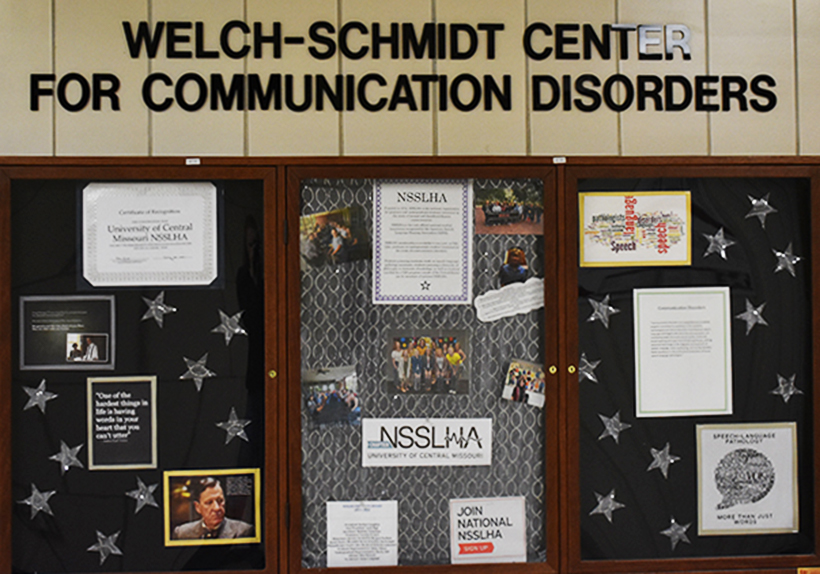The Welch-Schmidt Center for Communication Disorders has been a staple on the UCM campus since its inception in 1971, but it’s easy to walk past the center without knowing exactly what they do.
Kaitlyn Laughlin, a third semester grad student, said the Welch-Schmidt Center for Communication Disorders provides “diagnostics and therapy for individuals across the lifespan.” The center works with individuals on campus and in the Warrensburg community, as well as people in the surrounding areas such as Blue Springs and Lee’s Summit.
“[The Center] works with university and community members who have communication deficits, cognitive deficits, isolated skill deficits, feeding and hearing impairments and voice disorders,” said Klaire Brumbaugh, assistant professor of communication disorders and director of clinical services.
The center also works with international students to help provide accent modification for English language learners.
The center was built on campus to help communication disorders graduate students receive their 400 practicum hours in the field.
“We always have more applicants than we accept,” Brumbaugh said. “Our undergraduate program is larger than our graduate program. It is growing as one of the top professions. We have a 100 percent job placement and graduation rates.”
Licensed speech pathologists and audiologists supervise student clinicians as they work with patients through a series of cameras located in the classrooms. There is also a tunnel with two-way mirrors that allow teachers to get a closer view of the classrooms.
The center also provides its services free of charge for students and faculty and their dependents for the first semester and then half off the remaining semesters.
The ultimate goal of the clinic is to provide the necessary help to patients so they can thrive in their community.
“A positive outlook and progress on whatever their communication disorder may be,” Laughlin said. “We strive for progress. To council our clients and their caregivers, as well as the good things that we do and help them with.”
Brumbaugh said, “A big part of our job that we don’t realize is teaching our clients to be an advocate for themselves. Setting them up for success to achieve whatever goals they have- advocacy and progress.”
Traci Monrow, a fourth year graduate student, has some encouragement for individuals considering seeking help at the center
“If you come, you will get something out of it. I hope when you come, you come with an open mind so that whatever it is that you need that you have reassurance that you can get better and we’re here to help you get better.”



Leave a Reply